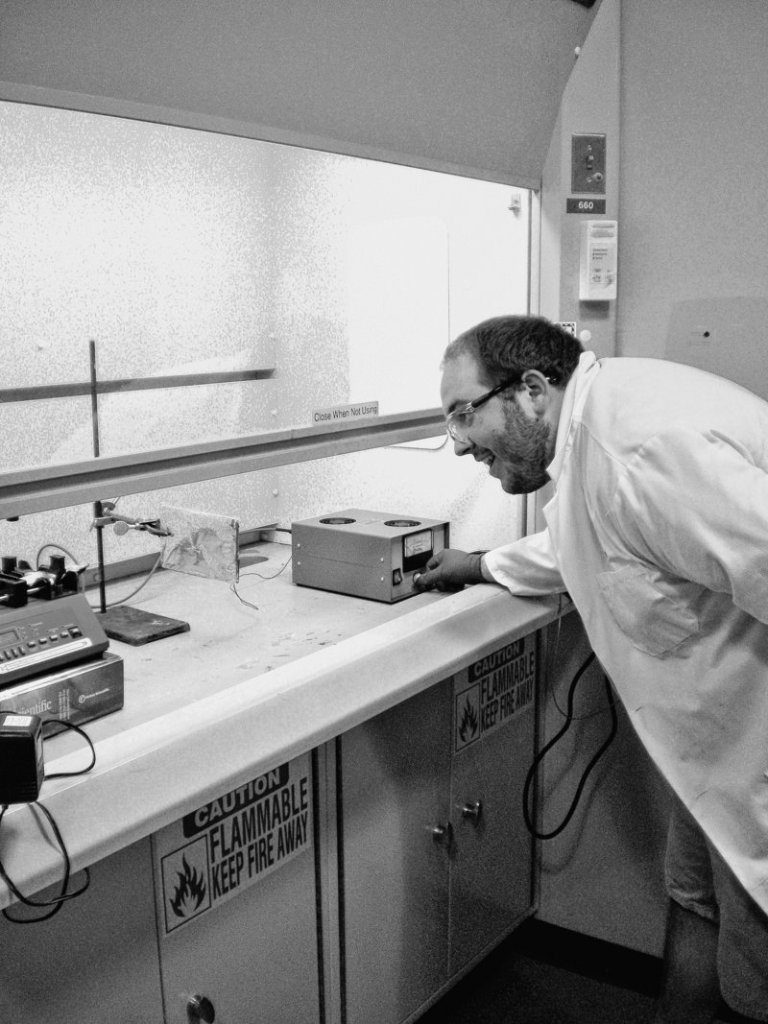The experimental work of Wells native Jonathan Guerrette and his Dartmouth College peers Devon Anderson and Nathan Niparko has piqued the curiosity of established inventors and earned them an all-expense-paid trip to Washington, D.C., next week as finalists in the National Collegiate Inventors Competition.
For the past year, the team has been experimenting with materials to create a new type of surgical sponge that harmlessly degrades if accidentally left inside a patient during surgery.
Guerrette and his fellow inventors came up with the idea after hearing concerns by the Veterans Administration about foreign objects being left inside patients during operations.
“The VA told us that surgical sponges (comprise) two-thirds of the objects accidentally left in patients during surgery,” said Guerrette. “Something like $1 billion annually, in the United States alone, is being spent on revision surgeries and the lawsuits that follow.”
Guerrette said many sponges are available on the market, such as those with scanning technology that allows surgeons to take an inventory of how many are used during surgery.
“But those sponges are not fail-safe,” said Guerrette. “We thought, ‘Why not just make a sponge that doesn’t pose a risk if it gets left in the body?’“
The team’s goal has been to perfect an absorbent bioresorbable surgical sponge using organic materials, including properties found in seaweed that are capable of absorbing 300 times their weight in water, and binding the substances together using an electrospun weaving method.
Guerrette believes the invention has the potential to revolutionize surgeries by eliminating the need for risky follow-up extractions and resulting lawsuits. And, they are not alone in that belief.
Invent Now, an Ohio-based nonprofit organization that established the National Inventors Hall of Fame and founded the inventors competition selected the team’s project as one of just 10 across the country to be considered for the 2010 contest that recognizes the best young minds from across the country for their innovative work and discoveries benefiting the fields of science, medicine, engineering, mathematics and technology.
Guerrette’s team will have the chance to win up to $10,000 as participants in the undergraduate division of the contest that is open to college students and those enrolled in college within the past year.
According to Invent Now Spokesperson Rini Paiva, the number of inventors selected to compete is determined based solely on the caliber of the inventions being submitted.
Before making the final cut, inventors are required to undergo a rigorous application process that includes submitting paperwork supporting their findings and having their inventions closely scrutinized by a qualifying panel of judges and contest officials.
“The purpose of the contest is to recognize young innovators who have the potential to change the world through their research,” said Paiva. “We look for work that is significant and potentially patentable. Our judges are experts in a variety of different fields. Many of them are inductees from the National Inventors Hall of Fame and experts from both the United States Patent and Trademark Office and the Abbott Fund; the latter of which are two main sponsors of the event.”
Paiva said the winners’ purse for the competition is intended to continue financing the work — whether that means buying new lab equipment or paying the rent. “Those are ancillary things that help them continue to focus on their work,” said Paiva.
Main funding for the surgical sponge development comes from the VA’s National Center for Patient Safety. Anderson oversees the project full time at a research laboratory in Littleton, N.H. Guerrette works there part time while he pursues a major in biochemical engineering from Thayer School of Engineering at Dartmouth.
A 2005 graduate of Berwick Academy, Guerrette said he’s never considered himself an inventor. But he is excited about the possibilities this opportunity affords his team and its impact on the future of science.
“If this project is successful, it could lead to a position as a technical officer for a new company that makes surgical sponges,” said Guerrette. “I wouldn’t be sad to be doing that.”
But first, the competition …
On Tuesday, the team will jointly present their invention to judges, who will deliberate on all submissions before announcing the winners on Oct. 27.
Paiva said that beyond winning prizes, the event serves as a great networking opportunity for attendees to share their work, see what others are doing and speak with inventors whose past contributions have changed the world.
“These are some of the brightest, most enthusiastic student inventors in the country,” said Paiva. “It’s really exciting just to be in a room and see them interact.”
Send questions/comments to the editors.


